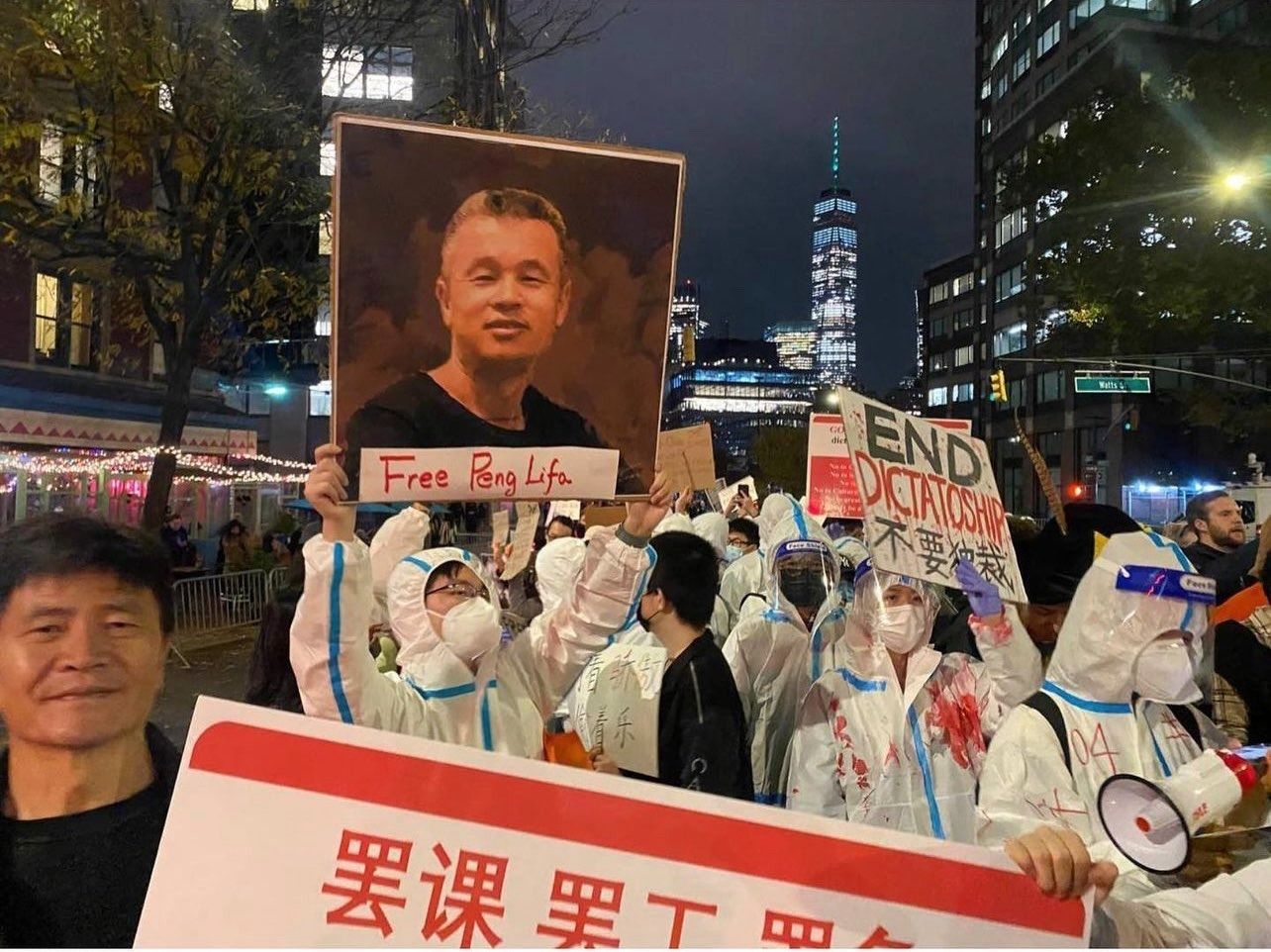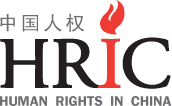



Hearing of the Congressional Executive Commission on China (CECC)
The CCP’s Transnational Repression of Emerging Activists After the White Paper Movement
September 12, 2023
Testimony of Zhou Fengsuo
Executive Director of Human Rights in China and Student Leader at the 1989 Tiananmen Square Demonstrations
Introduction
My name is Zhou Fengsuo, and I am a former Tiananmen student leader and current Executive Director of Human Rights in China, a New York based organization that advocates for a more just and democratic Chinese future. I am honored to provide testimony on the situation of Chinese students in the United States, which grows more and more precarious with each passing day. Due to my position as a long-time activist, I have been lucky enough to meet with hundreds of young overseas Chinese activists and hear their stories. Last year, frustration with the Chinese government’s repressive policies finally overflowed and sparked the White Paper Movement, where individuals—mostly students and young people—around the world protested against CCP censorship and repression. In the aftermath of these protests, the CCP has cracked down on anyone who was involved, and has especially targeted students on U.S. campuses.
Chinese students in the United States played a critical role in the White Paper Movement. It was their mobilization that eventually forced the CCP to change their policies. The White Paper protests demonstrated that student activism abroad is a crucial method of putting pressure on the Chinese government. We believe that in the future, activism outside of China will continue to be highly influential, and it is imperative that we support emerging activism with the goal of promoting change in China.
However, activism organizations and individual activists all over the world are now facing harassment and retaliation from the CCP because of their activities during the White Paper Protests. This lack of security is the main obstacle they are facing. Pushing back on the long arm of the CCP and resisting its transnational repression is key to ensure the future success of the organizations formed after the White Paper Movement.
From those who have been brave enough to share their situations with us, we know that the CCP mostly collects information through online surveillance, as well through pro-CCP student informants. We also know that the two most common strategies for suppressing activist voices are detaining them for questioning if they return to China, and holding their parents hostage until they agree to stop their activities or even become informants themselves. In the past year, I have traveled across the globe to meet with young activists who have been targeted in the aftermath of the White Paper Movement, learn their concerns, and discuss how to best support and protect them. Below, I will share just a few of their stories.
The CCP Harasses Activists to Instill Fear
I have interviewed dozens of activists in North America and Europe who became involved in the pro-Democracy movement following the White Paper protests. Many of them are young, college students or recent graduates who became involved in activism on their college campuses. Their level of “activist” activity ranges from those who merely post anti-CCP messages on social media to those who attend protests and try to rally their fellow students.
Many students have told me similar stories of harassment from Chinese police. Often, there is some key moment of exposure—a phone number revealed online, a viral social media post, or a classmate turned informant. There are even cases of email addresses found by Chinese police through website accounts that should have only been visible to employees of a U.S. company, which suggests that CCP agents have managed to access some internal databases.
Once an overseas activist is on the radar of the authorities, the Chinese police often use one of two strategies: hostage-taking or direct interrogation. The first strategy involves Chinese police going to the home of the activist’s parents, calling the activist, and forcing their parents to ask specific questions about their activities and other contacts before demanding that they stop whatever anti-CCP actions they have been engaged in. There is, of course, an implicit (or explicit) threat to their parents if they do not comply. This strategy is especially common among young overseas activists because so many of them have parents back in China, who are an easy target for retaliation.
The second strategy is to detain and question the young activists themselves, usually when they return home to see their families in China. Students have told me about being taken away by police and interrogated for over ten hours at a time. Especially for young people with little experience in this arena, such detentions are terrifying. The police threaten their families and tell them they will be thrown in jail for years in order to elicit a “confession.”
No matter which strategy the police employ, the intent is clearly to frighten the activist into stopping their activities, and to collect information about their networks. Police often demand that the activists themselves become informants and spy on other overseas students and organizations.
I have heard similar stories from activists across the U.S., Canada, and Europe. In Germany, several activist organizations are all but dissolved after constant harassment from CCP agents made them too afraid to contact one another. Some told me they were even followed, despite living outside China, which made them so afraid they ceased their activities altogether and went into hiding. A student on an American campus was threatened with violence by a classmate, who told her he would cut off her hands if she continued posting anti-CCP content.
Conclusions
From speaking with activists, I have learned several key facts about the CCP’s tactics for transnational repression. First, the significance of the internet for surveillance purposes cannot be understated. It enables direct surveillance by CCP agents and creates new platforms for self-censorship. Second, students who support the CCP pose a threat to Chinese students’ freedom of speech. They may report on their classmates, or threaten them directly. Third, the fact that most Chinese students have family members back home makes them uniquely vulnerable to “hostage” style questioning and pressure from the authorities.
So far, it seems that most of the information the Chinese police have on activists comes from online surveillance of social media and websites. But, there are still real concerns about informants within the Chinese diaspora community. Even though the recent activities by U.S. law enforcement against informants have been widely positively received by the Chinese activist community, they need direct and concrete support from universities and the government in protecting their safety from the CCP’s still-pervasive influence, both online and on the ground.
From Chinese students’ point of view, these are real, serious risks that create a chilling effect on activism and speech. The situation does not show signs of improvement; to the contrary, concerning cases have proliferated in recent years. We should seek to protect Chinese students and enable them to enjoy the freedom of speech that should be guaranteed in America.
Proposals
1. Universities should be proactive in protecting the rights of free speech of Chinese students, especially against material risks
a. New students who arrive should be given some sort of rights training, with an emphasis on free speech
b. Students should be warned that they can be prosecuted for threats or taking threatening actions against other students
c. Chinese Students and Scholars Association (CSSA) have been an extension of the CCP’s influence on college campuses. These organizations harbor student informants and create a chilling environment of fear for Chinese student communities. They should be required to disclose their associations with the Chinese Embassy and other affiliates.
2. Students faced with CCP repression often feel confused and afraid, which renders them unable to resist under pressure. We need to establish channels to connect Chinese students with relevant government offices and institutions so that incidents can be understood quickly and help can be provided in an effective, safe, and timely manner.
3. Online surveillance and data leaks should be a major concern for legislation and enforcement.
4. Facebook recently removed many accounts that are associated with disinformation. All major social platforms should crack down on these fake accounts.